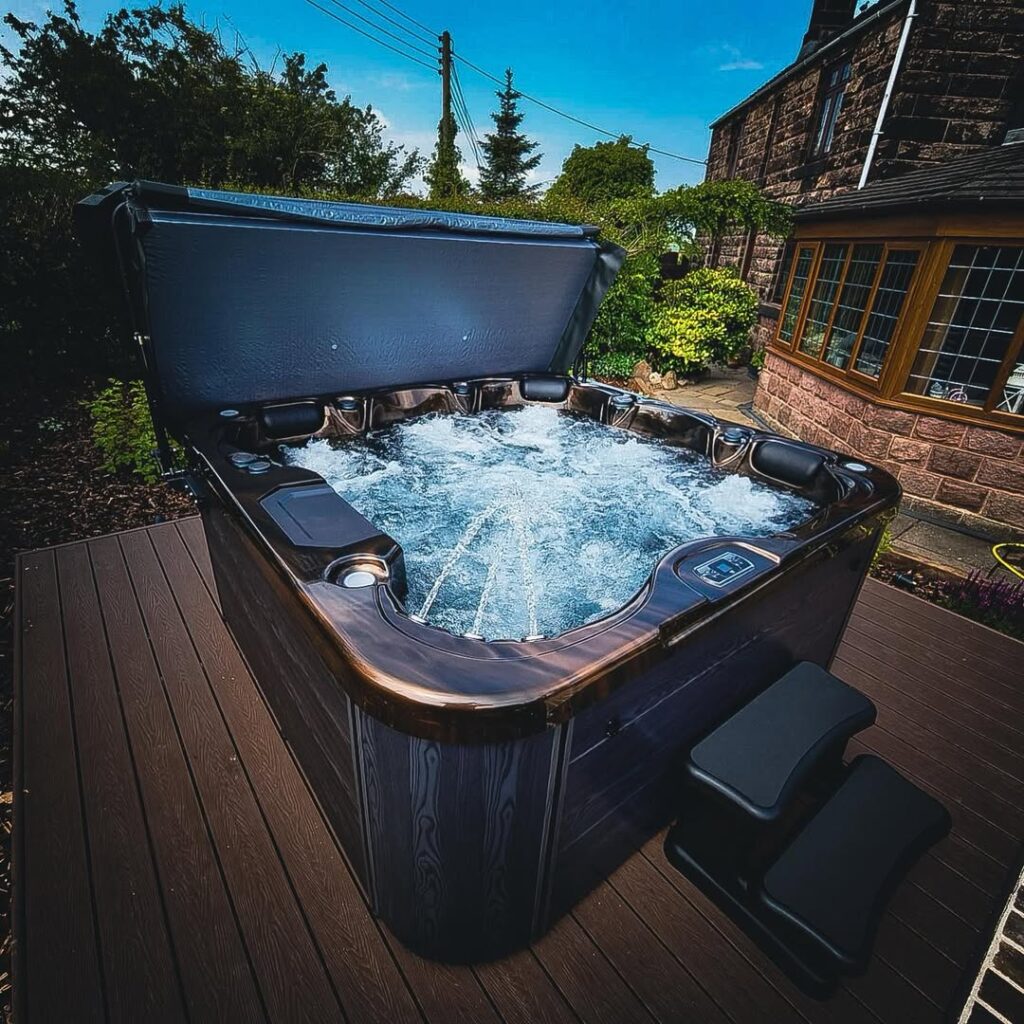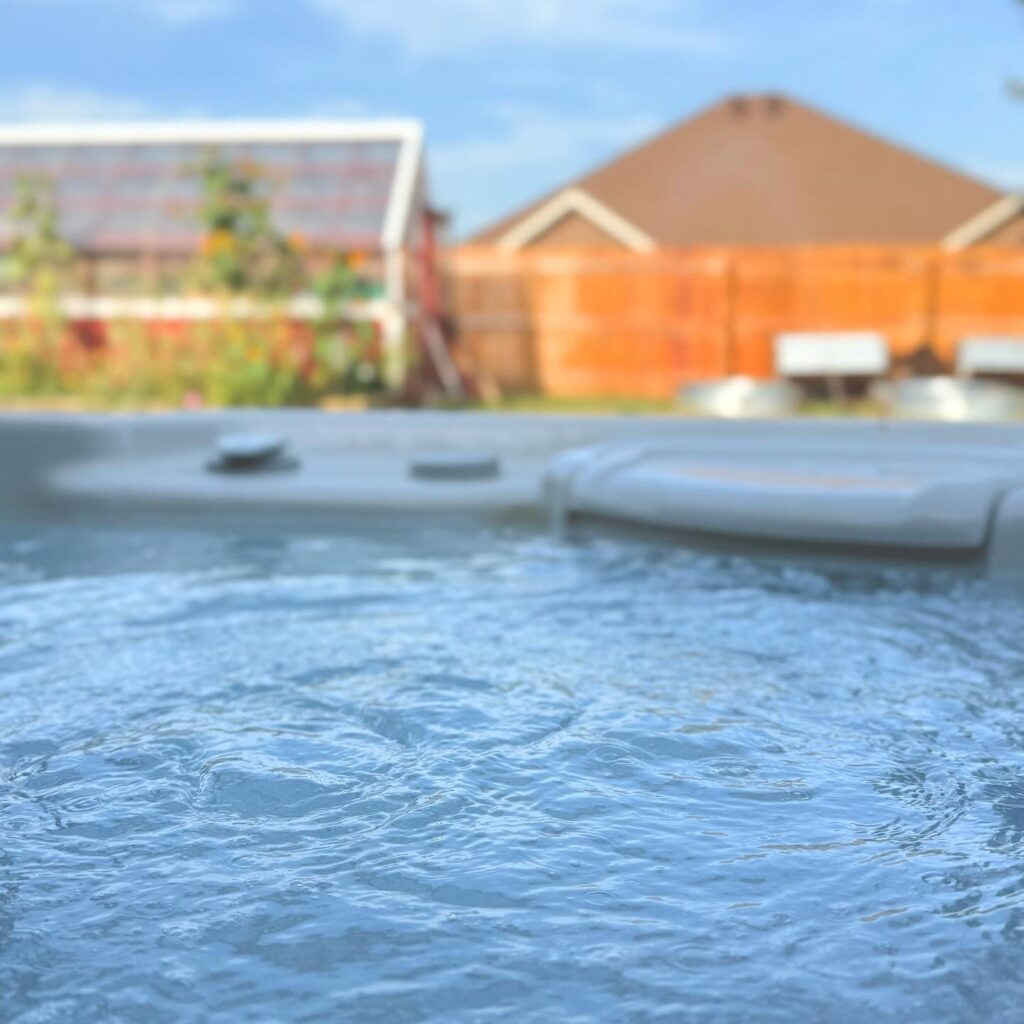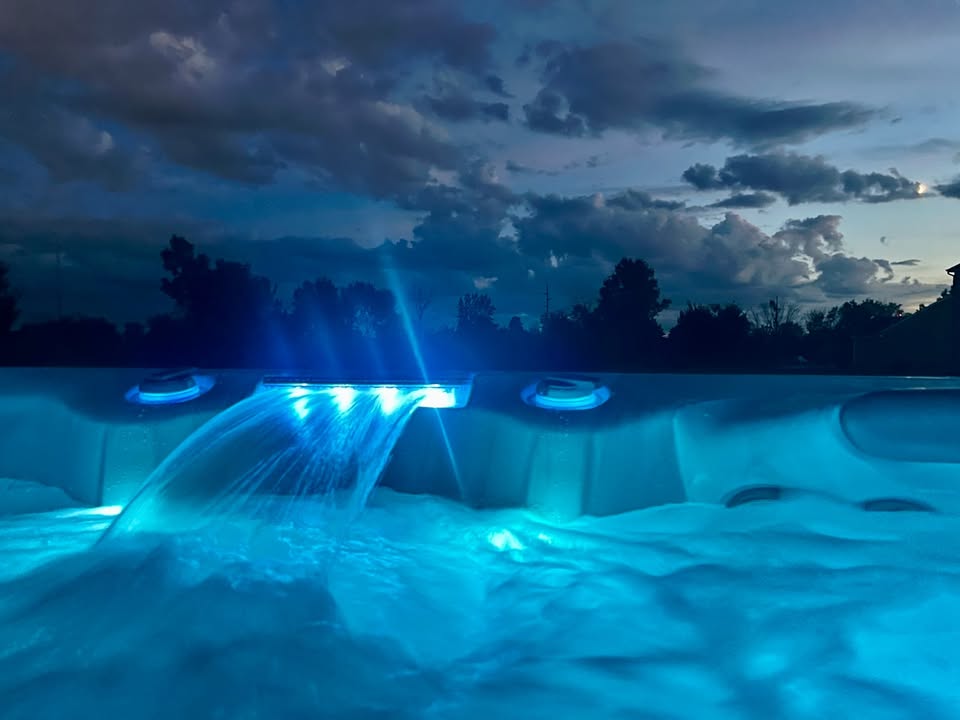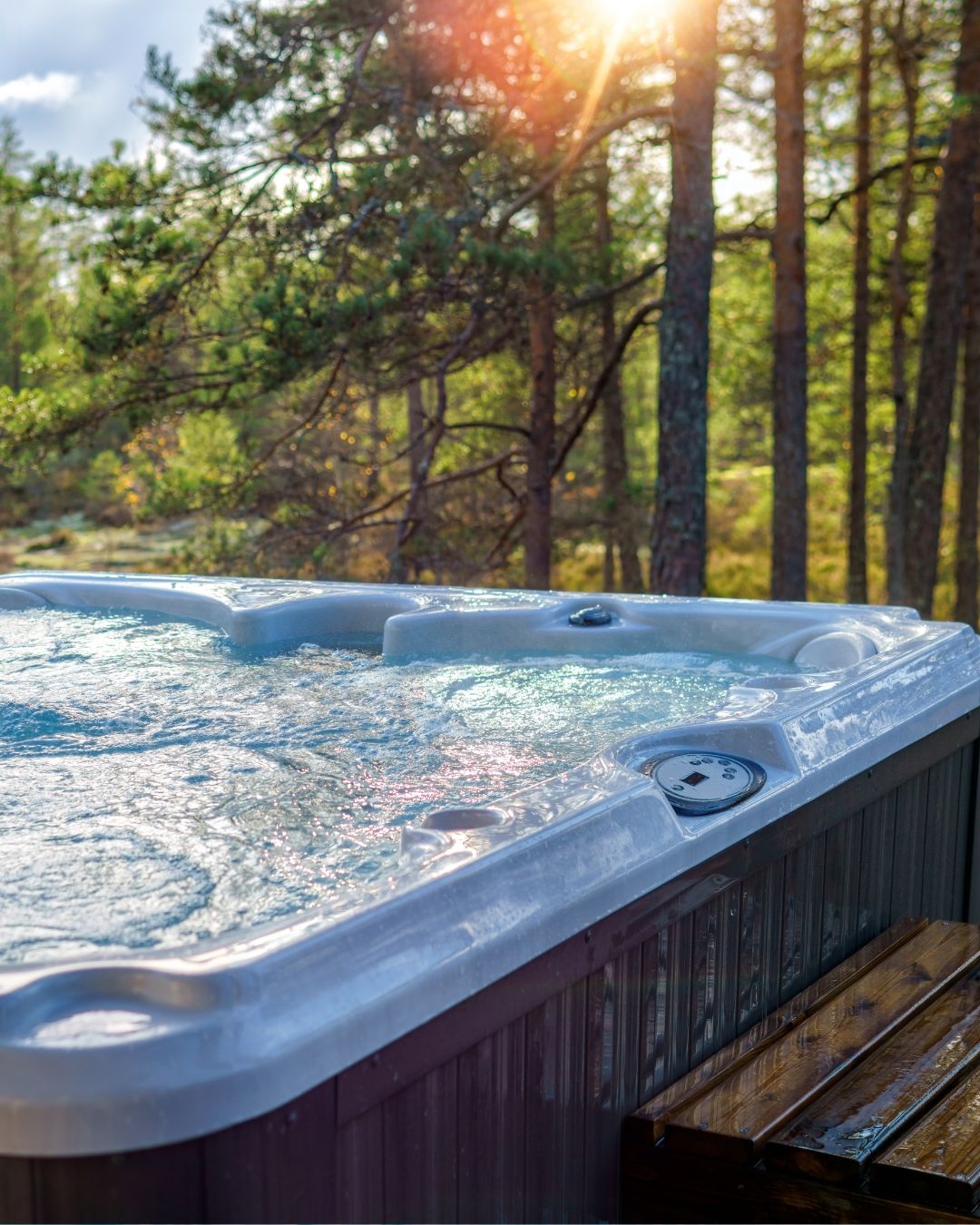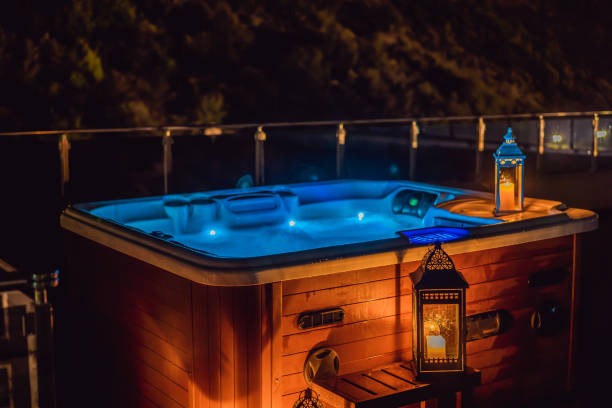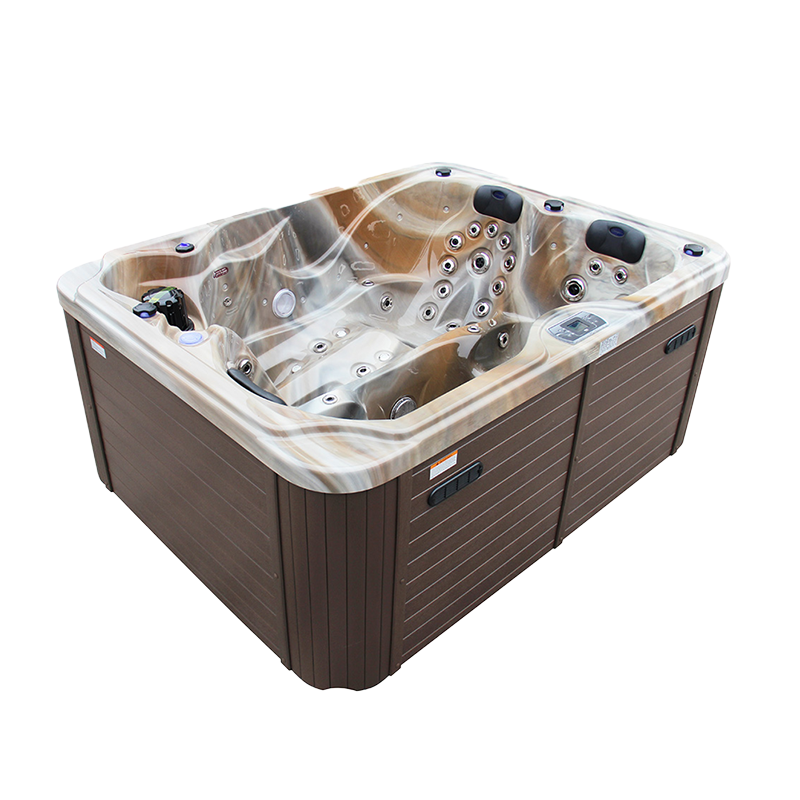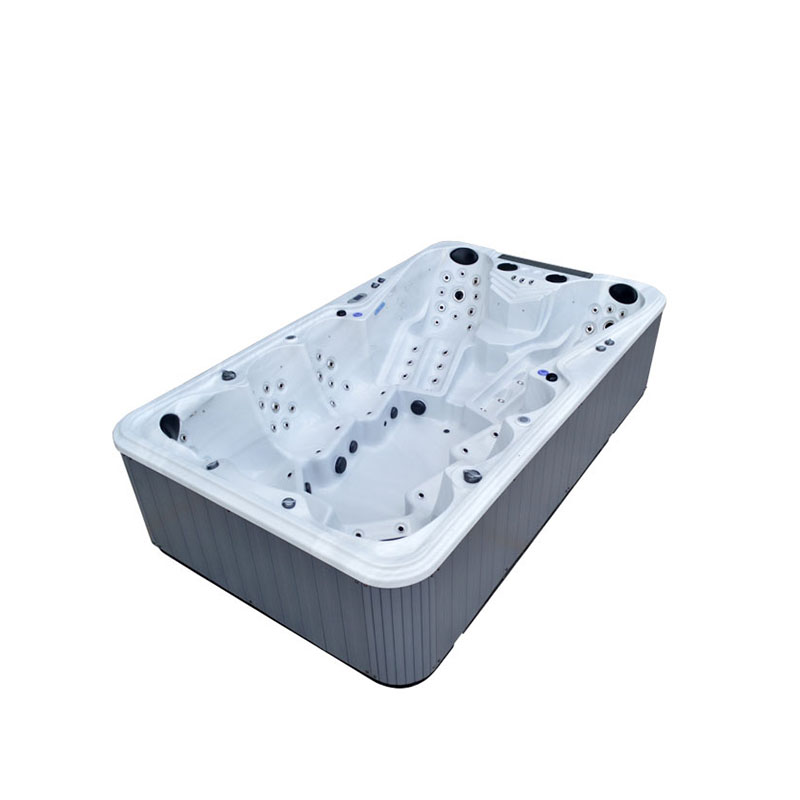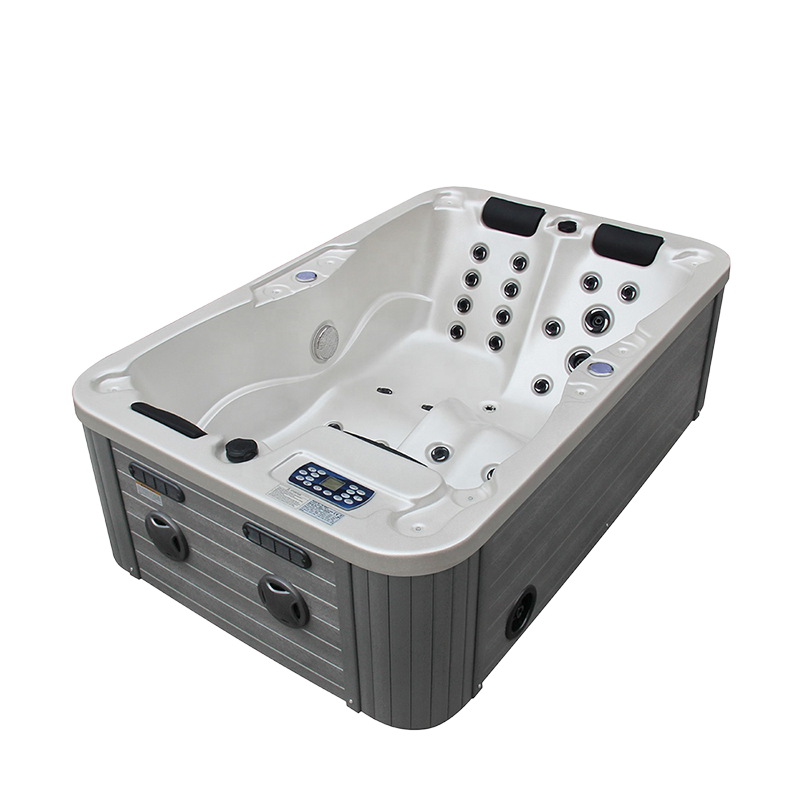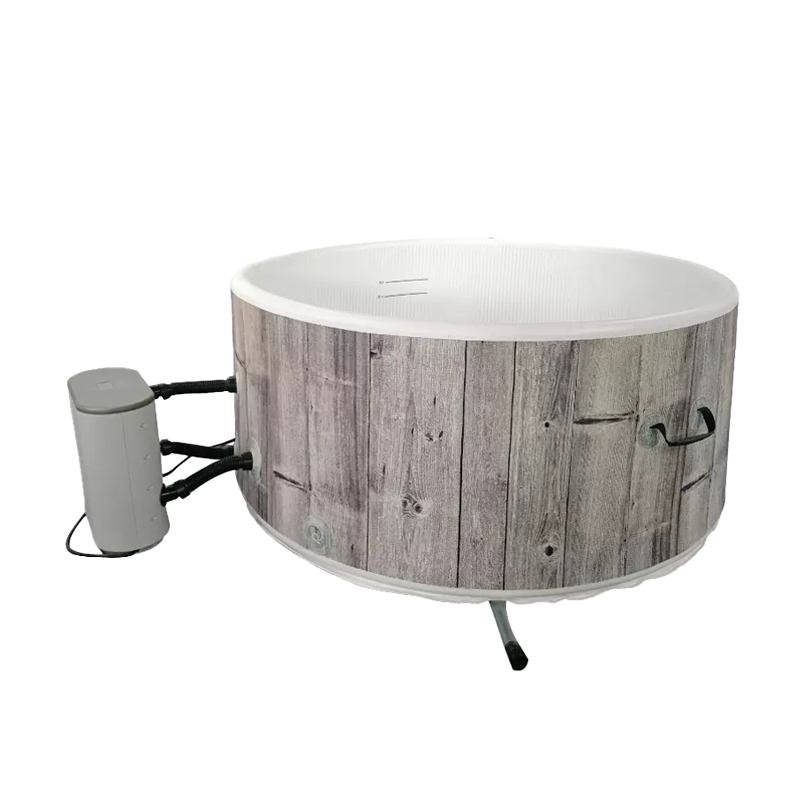Picture yourself sinking into a pool of warm, bubbling water, the jets massaging your tired muscles while steam rises gently into the air. That comforting scene is more than just a luxury or a special occasion indulgence it is a powerful way to improve your physical and mental well being. For centuries, cultures around the world have embraced warm water immersion, from ancient Roman baths to Japanese onsens, recognizing the healing power of heat, buoyancy, and hydrotherapy.
Modern hot tubs take this timeless tradition to the next level, offering a safe, private, and customizable environment that can transform your health. Regular hot tub sessions can relieve stress, reduce chronic pain, improve sleep, enhance circulation, and even support recovery from injuries. Beyond physical wellness, they also offer opportunities to connect with loved ones, practice mindfulness, and carve out moments of peace in a fast paced world.
In this article, we will explore the wide ranging health benefits of hot tubs, uncover how they impact both body and mind, and highlight a few surprising perks you may not have considered. Whether you own a hot tub, are thinking about investing in one, or are simply curious, you will discover why this simple act of soaking in warm, soothing water can make such a profound difference.
Stress Relief Washing Away Tension
Stress is one of the most common modern ailments, and its impact on health can be severe contributing to high blood pressure, insomnia, and even weakened immunity. Few remedies are as simple and effective as a soak in a hot tub.
Warm water immersion reduces cortisol the body s stress hormone while increasing endorphins which are natural mood elevators. The enveloping warmth, paired with gentle massage from jets, calms the nervous system. Some researchers even liken the effect to a liquid weighted blanket where both body and mind feel cocooned in safety.
Even just anticipating a hot tub session can shift your mood. Knowing that you will soon be floating in warm bubbles encourages your body to preemptively relax, easing mental tension before you even dip a toe into the water.
Alleviating Anxiety and Promoting Calm
While stress and anxiety are closely related, anxiety often has a stronger mental component, with symptoms such as racing thoughts, tightness in the chest, or difficulty relaxing. Hot tubs can provide a refuge from these sensations.
The sensory experience of a soak soothing water sounds, mood lighting, and the rhythmic pulse of jets helps anchor the mind. Many hot tubs today come with customizable features such as underwater lighting, waterfalls, and built in speakers. These options let you create a spa like atmosphere tailored to calming your anxiety, making every soak a fully immersive form of therapy.
Natural Detox Support
The word detox is often overused, but in the context of hot tubs, it makes sense. Your body naturally eliminates toxins through the liver, kidneys, and skin. By increasing blood circulation, hot tubs help deliver oxygen and nutrients to these organs, boosting their efficiency.
Sweating while soaking especially in higher temperatures also encourages the release of impurities through the skin. This process, paired with better circulation, supports your body s natural detox pathways without gimmicks or fad diets.
Relaxing and Releasing Muscles
One of the most immediate benefits you will feel in a hot tub is muscle relaxation. Heat dilates blood vessels, sending more oxygen rich blood to tense or sore muscles. At the same time, buoyancy eases pressure on joints, making movement easier.
This makes hot tubs especially valuable for:
- Athletes recovering from workouts
- Older adults with stiff joints
- People with chronic pain such as arthritis or fibromyalgia
Hydrotherapy not only reduces pain but also restores mobility, making everyday movements smoother and less uncomfortable.
Calorie Burn and Weight Management
It might surprise you to learn that soaking in hot water can slightly increase calorie burn. When your body is exposed to warm water, it works harder to regulate internal temperature. This mild metabolic boost can mimic some of the physiological responses of light exercise.
For instance, one study found that soaking in 40°C water produced the same heat shock proteins as moderate exercise. While it is not a substitute for physical activity, it can complement your wellness routine especially if you have mobility limitations that make regular exercise challenging.
Improving Sleep Quality
If you struggle to fall asleep or stay asleep, your hot tub may be the key to sweeter dreams. Immersing yourself in warm water about 90 minutes before bedtime raises your body temperature. As your body cools afterward, it triggers a natural sleep signal, making you feel drowsy.
Regular hot tub use has been shown to improve sleep quality, reduce insomnia symptoms, and encourage deeper, restorative rest. Even a quick 15 to 20 minute soak before bed can reset your body s internal clock and prepare you for a restful night.
Pain Relief for Chronic Conditions
Chronic pain affects millions of people worldwide, and managing it often requires a combination of lifestyle adjustments and therapy. Hot tubs offer a drug free option that can complement medical treatment.
Conditions that may benefit include:
- Arthritis reduced joint stiffness and improved mobility
- Back pain relief from muscle spasms and spinal compression
- Migraines tension reduction in the neck and shoulders
- Fibromyalgia soothing nerve pain and reducing muscle tenderness
The analgesic pain relieving effect of warm water helps reduce discomfort, while hydrostatic pressure supports the body and eases inflammation.
Heart and Circulatory Health
Immersing in hot water impacts your cardiovascular system in powerful ways.
Key physiological responses
- Stronger cardiac output your heart pumps more efficiently
- Dilated blood vessels circulation improves
- Reduced resistance floating in water eases the effort of blood traveling through the body
Together, these effects lower blood pressure, enhance metabolism, and promote healthier blood flow. For people unable to engage in vigorous exercise, hot tubs can provide a safe alternative for supporting cardiovascular wellness.
Supporting Insulin Sensitivity
For individuals with type II diabetes, improving insulin sensitivity is crucial for blood sugar management. While hot tubs are not a cure, they can play a supportive role. By encouraging better circulation, reducing stress, and promoting sleep all factors linked to blood sugar regulation a soak can indirectly improve your body s ability to respond to insulin.
Additionally, people with limited mobility may find hot tubs a safe environment to engage in gentle exercise, further supporting metabolic health.
Family and Social Connection
Beyond individual health, hot tubs foster togetherness. Sharing the warm water with family or friends encourages conversation and bonding without the distractions of phones, television, or busy schedules.
Being outdoors in fresh air while soaking amplifies the benefits, combining relaxation with nature s calming influence. A hot tub can quickly become a centerpiece of family gatherings or quiet moments with loved ones.
Self Care and Mental Reset
Sometimes, health means simply slowing down. In a hot tub, you are encouraged to disconnect from stressors and reconnect with yourself. The warm, buoyant water creates a peaceful environment for mindfulness, meditation, or simply enjoying silence.
Taking even 20 minutes for yourself can reduce burnout, improve focus, and remind you of the importance of self care.
Boosted Immunity New Feature
One benefit that often goes overlooked is immune system support. Regular hot tub use may reduce the frequency of colds and minor illnesses by stimulating circulation and promoting better sleep both vital for immunity.
Heat therapy can also mimic a mild fever, which helps the body produce more white blood cells and strengthen defenses against pathogens. While it is not a replacement for medical care, soaking can contribute to overall immune resilience.
Enhanced Skin Health New Feature
Your skin also benefits from hot tub use. Increased circulation delivers oxygen and nutrients to skin cells, giving your complexion a healthier glow. The steam opens pores, helping remove dirt and oil buildup.
For an extra boost, hydrating afterward with a moisturizer locks in the benefits. Used wisely, hot tubs can be part of a simple skincare routine that leaves your skin looking refreshed and revitalized.
Conclusion A Lifestyle of Wellness
Hot tubs are far more than a backyard luxury they are a gateway to better health. By combining heat, buoyancy, and massage, they provide relief for stress, anxiety, chronic pain, circulation issues, and sleep disturbances. They also strengthen relationships, encourage self care, and even support immunity and skin health.
Whether you are an athlete, a busy professional, someone managing chronic pain, or simply in need of relaxation, regular hot tub sessions can transform your daily routine. Investing time in warm water therapy is investing in yourself. Each soak is not just relaxation it is a step toward a healthier, happier life.
KKK
Q1 How long should I stay in a hot tub for health benefits?
Most experts recommend 15 to 30 minutes per session. Longer soaks can be safe if you stay hydrated and listen to your body, but shorter, consistent sessions are often more beneficial.
Q2 Are hot tubs safe for people with heart conditions?
Hot tubs can improve cardiovascular function, but those with heart disease, high blood pressure, or other medical concerns should consult a doctor before regular use.
Q3 How often should I use a hot tub to see benefits?
Even 2 to 3 times a week can make a noticeable difference in stress, sleep, and muscle recovery. Daily use is safe for most people as long as water quality and personal health considerations are maintained.

